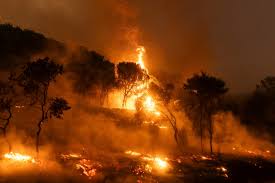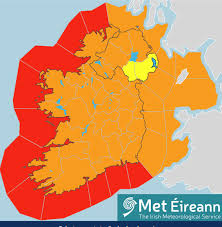Wildfires in Greece: Understanding the Recent Blaze

Introduction
Wildfires have become an increasingly pressing issue in Greece, particularly during the summer months when dry conditions prevail. The recent surge in wildfires has captured global attention, highlighting the growing threats posed by climate change and the urgent need to implement effective fire management strategies. Given Greece’s rich biodiversity and historical landscapes, the devastation caused by these wildfires threatens not only the environment but also the livelihoods of local communities.
Details of the 2023 Wildfires
In August 2023, Greece experienced one of the most severe wildfire seasons on record, with blazes erupting across various regions, including Evia, the Peloponnese, and parts of Attica. These fires, exacerbated by an unprecedented heatwave and strong winds, led to the evacuation of thousands of residents and tourists. According to the Greek Fire Service, over 1,000 fires were reported in just a span of two weeks, with the area around Lake Vistonida witnessing some of the most destructive incidents.
Impact on Communities and the Environment
The wildfires resulted in the destruction of homes, farmland, and critical infrastructure, compounding the difficulties faced by local economies still recovering from the COVID-19 pandemic. Environmentalists have expressed profound concern for Greece’s unique ecosystems, warning that the loss of flora and fauna will have long-term implications for biodiversity. The fires released significant amounts of carbon dioxide, further contributing to climate change and air quality degradation, prompting health warnings from authorities.
Government and Community Response
In response to the wildfires, the Greek government has initiated emergency measures to assist affected communities, including financial aid and support for reconstruction efforts. International support has also poured in, with countries like Spain and France sending firefighting teams to help combat the blazes. Local volunteer groups have been instrumental in rescue and recovery operations, showcasing the resilience and solidarity of Greek communities in the face of adversity.
Conclusion
The wildfires in Greece serve as a stark reminder of the pressing challenges posed by climate change and the need for robust preventative measures. Experts advocate for improved forest management practices, better infrastructure for fire response, and increased public awareness to mitigate future disasters. As climate patterns continue to shift, it is crucial for both government authorities and local communities to work hand in hand, ensuring the protection of Greece’s precious landscapes and the welfare of its citizens. Future forecasts indicate that, without significant intervention, the incidence of wildfires may continue to rise, further endangering both the Greek environment and economy.









